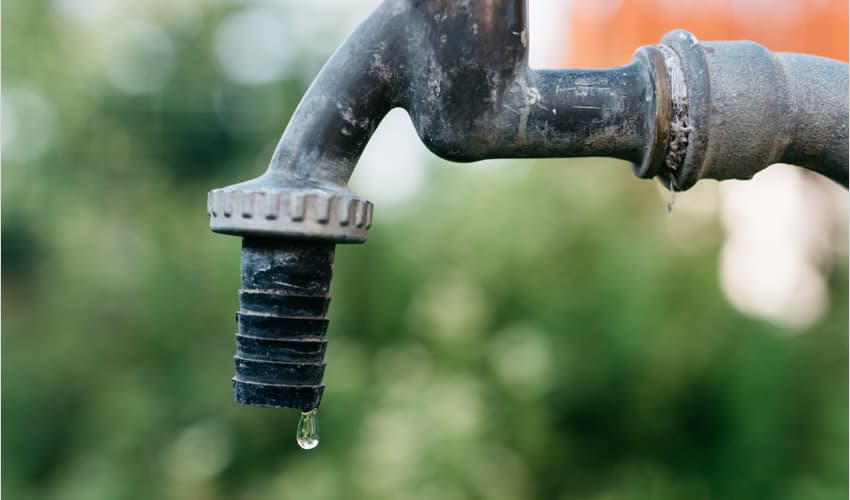Discover the Most Frequent Factors Leading To Water Leakage in Your Home
Discover the Most Frequent Factors Leading To Water Leakage in Your Home
Blog Article
Are you currently trying to locate tips concerning How to detect water leaks in your home?

Leakages not just cause waste of water but can also create unneeded damages to your residence and also advertise unwanted organic growth. Water leaks may go unnoticed because most of the pipework in our residence is concealed. By looking as well as understanding for day-to-day circumstances that cause leakages, you can shield your house from future leaks and also unneeded damages. Today, we will take a look at six leakage triggers that may be causing your pipelines to leak.
Elbowing in roots
The majority of water leaks begin outside the residence rather than inside it. You could notice damp patches or sinkholes in your lawn, and also that may suggest that tree origins are getting into water lines creating water to seep out.
Rusty water systems
As time goes by, your plumbing system ages and deterioration such as corrosion may begin eating away the pipes. This could be the root cause of staining or warping on your pipes. This calls for an inspection with your plumber right away. Consider replacing the pipelines since they are at a higher danger of deterioration than the newer models if our plumbing system is old.
Malfunctioning Pipe Joints
The point at which your pipes attach is regularly the weakest link in the waterline. Pipe joints can deteriorate in time, leading to water leakages. However, most of pipeline joints are not conveniently visible. If you have noisy pipes that make ticking or banging noises, particularly when the hot water is turned on, your pipe joints are probably under a lot of pressure. It is advisable to have your plumber inspect your system once a year.
Instantaneous temperature level changes.
Extreme temperature adjustments in our pipes can cause them to increase and also contract unexpectedly. This expansion and contraction may create fractures in the pipes, especially if the temperature are below freezing. If you kept an eye on just how your plumbing functions, it would certainly be best. The existence of the formerly pointed out situations frequently shows a high danger.
Poor Water Connectors
At times, a leakage can be caused by loosened hose pipes as well as pipes that supply your devices. In case of a water links leak, you might see water running directly from the supply line or pools around your appliances.
Obstructed Drains
Obstructed drains could be annoying and also inconveniencing, however they can occasionally wind up triggering an overflow causing burst pipelines. Keep eliminating any materials that might drop your drains that might block them to stay clear of such aggravations.
All the above are reasons for leakages yet not all water leaks arise from plumbing leakages; some leaks may originate from roofing system leaks. All leakages must be fixed instantly to prevent water damages.
Leaks not only trigger waste of water however can additionally cause unneeded damages to your residence and promote unwanted organic development. By recognizing and looking for day-to-day situations that trigger leaks, you can secure your house from future leakages as well as unneeded damages. Today, we will certainly look at 6 leakage creates that might be creating your pipelines to drip.
At times, a leak can be caused by loose hoses and also pipelines that provide your devices. In instance of a water links leakage, you might observe water running straight from the supply line or pools around your appliances.
How To Check For Water Leak In Your Home
How To Check for Leaks
The average household's leaks can account for nearly 10,000 gallons of water wasted every year and ten percent of homes have leaks that waste 90 gallons or more per day. Common types of leaks found in the home are worn toilet flappers, dripping faucets, and other leaking valves. These types of leaks are often easy to fix, requiring only a few tools and hardware that can pay for themselves in water savings. Fixing easily corrected household water leaks can save homeowners about 10 percent on their water bills.
To check for leaks in your home, you first need to determine whether you're wasting water and then identify the source of the leak. Here are some tips for finding leaks:
Take a look at your water usage during a colder month, such as January or February. If a family of four exceeds 12,000 gallons per month, there are serious leaks.
Check your water meter before and after a two-hour period when no water is being used. If the meter changes at all, you probably have a leak.
Identify toilet leaks by placing a drop of food coloring in the toilet tank. If any color shows up in the bowl after 10 minutes, you have a leak. (Be sure to flush immediately after the experiment to avoid staining the tank.)
Examine faucet gaskets and pipe fittings for any water on the outside of the pipe to check for surface leaks.
Undetected water leaks can happen without the home or business owner even realizing. If you suspect a water leak, but not able to find the source. It is time to contact a professional water leak detection service, The Leak Doctor.
How To Find a Water Leak In Your Home
https://www.leakdoctor.com/blog/How-To-Check-For-Water-Leak-In-Your-Home_AE197.html

I found that write up on Top Causes of Home Water Leaks while doing a lookup on the internet. Liked our blog? Please share it. Help somebody else find it. Thank you so much for going through it.
Best in town? Dial. Report this page